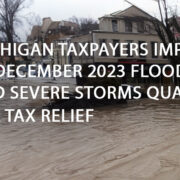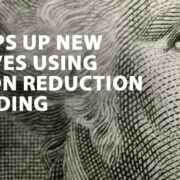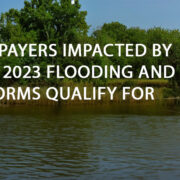IRS Using Inflation Reduction Act Funding To Ramp Up Audits Of Corporate Aircraft Usage
More than $482 million recovered from 1,600 millionaires who have not paid tax debts.
Under the Inflation Reduction Act the IRS is receiving $80 billion in new funding over nine years. The $80 billion price tag is more than six times the current annual IRS budget of $12.6 billion. The money will be distributed to IRS over nine years and comes with few strings attached.
IRS Claims Of Collection Enforcement And Examinations
On January 12, 2024 the IRS announced continued progress to expand enforcement efforts and increase scrutiny related to high-income individuals, large corporations, complex partnerships who do not pay overdue tax bills as a result of the additional funding it is receiving under the Inflation Reduction Act.
In its enforcement efforts and increasing scrutiny, the IRS is focusing on people using partnerships to avoid paying self-employment taxes. The IRS is also continuing to pursue millionaires that have not paid hundreds of millions of dollars in tax debt, with an additional $360 million collected on top of the $122 million reported in late October 2023. The IRS has now collected $482 million in ongoing efforts to recoup taxes owed by 1,600 millionaires with work continuing in this area.
The various and specific ways the IRS is pursuing higher scrutiny and expanding their enforcement efforts include, prioritization of high-income collection cases, pursuing multi-million-dollar partnership balance sheet discrepancies, ramp of audits of 76 largest partnerships leveraging artificial intelligence, compliance alerts for large foreign-owned corporations who use transfer pricing rules year after year to report losses and avoid reporting an appropriate amount of U.S. profits, expansion of large corporate compliance program, and IRS has been increasing compliance to ensure that Self-Employment Contributions Act (SECA) taxes are being properly reported and paid by wealthy individual partners who provide services and have inappropriately claimed to qualify as “limited partners” in state law limited partnerships (such as investment partnerships) not subject to SECA tax.
IRS Commissioner Danny Werfel noted Inflation Reduction Act resources allows the IRS “to increase scrutiny on high-income taxpayers as we work to reverse the historic low audit rates and limited focus that the wealthiest individuals and organizations faced in the years that predated the Inflation Reduction Act. We are adding staff and technology to ensure that the taxpayers with the highest income, including partnerships, large corporations and millionaires and billionaires, pay what is legally owed under federal law. At the same time, we are focused on improving our taxpayer service for hard-working taxpayers, offering them more in-person and online resources as part of our effort to deliver another successful tax season in 2024. The additional resources the IRS has received is making a difference for taxpayers, and we plan to build on these improvements in the months ahead.”
IRS begins audits of corporate aircraft usage to increase scrutiny related to high-income individuals and improve tax compliance
On February 21, 2024 the IRS announced that more audits will focus on aircraft usage by large corporations, large partnerships and high-income taxpayers and whether for tax purposes the use of aircrafts is being properly allocated between business and personal reasons.
Business aircraft are often used for both business and personal reasons by officers, executives, other employees, shareholders and partners. In general, the tax code passed by Congress allows a business deduction for expenses of maintaining an asset, such as a corporate jet, if that asset is utilized for a business purpose. However, the use of a company aircraft must be allocated between business use and personal use. Since personal use cannot be a business deduction, there must be an allocation between aircraft usage for business and personal reasons. This can make record-keeping challenging.
For someone such as an executive using the company jet for personal travel, the amount of personal usage impacts eligibility for certain business deductions. Use of the company jet for personal travel typically results in income inclusion by the individual using the jet for personal travel and could also impact the business’s eligibility to deduct costs related to the personal travel.
The examination of corporate jet usage is part of the IRS Large Business and International division’s “campaign” program. The IRS designated campaigns apply different compliance streams to help address areas that the IRS believes there is a high risk of non-compliance. Prior to the Inflation Reduction Act, more than a decade of budget cuts prevented the IRS from keeping pace with the increasingly complicated set of tools that the wealthiest taxpayers use to shelter or manipulate their income to avoid taxes. Using the additional funding from the Inflation Reduction Act, the IRS says it is now taking swift and aggressive action to close this gap.
New examples of cases closed since the Inflation Reduction Act passed
- In January 2024, two individuals were sentenced to 25 years and 23 years respectively in prison for conspiracy to commit wire fraud, aiding and assisting the filing of false tax returns and money laundering for their role in promoting a fraudulent tax shelter scheme involving syndicated conservation easements.
- In December 2023, a Swiss Bank entered into a Deferred Prosecution Agreement (DPA) and agreed to pay approximately $122.9 million to the U.S. Treasury for their role in assisting U.S. taxpayer-clients with evading their U.S. taxes by opening and maintaining undeclared accounts. The bank also maintained accounts of certain U.S. taxpayer-clients in a manner that allowed them to further conceal their undeclared accounts from the IRS. In total, from 2008 through 2014, the bank held 1,637 U.S. Penalty Accounts, with aggregate maximum assets under management of approximately $5.6 billion in January 2008, on behalf of clients who collectively evaded approximately $50.6 million in U.S. taxes.
- In December 2023, an individual was sentenced to 10 years and 10 months and ordered to pay more than $130,000 in restitution, another was sentenced to 102 months in prison and ordered to pay more than $2.5M in restitution and a third individual was sentenced to four years in prison and ordered to pay more than $2.5M in restitution for their involvement in a RICO Conspiracy for cyber intrusion and tax fraud. These individuals used the dark web to purchase server credentials for the computer servers of Certified Public Accounting and tax preparation firms across the country.
- In December 2023, an individual was sentenced to 28 months in federal prison and ordered to pay over $470,000 in restitution to the IRS for filing a false tax return while working as a money mule for romance scams. The individual opened and maintained bank accounts to collect proceeds from the schemes and to send the money to himself and others overseas.
- An individual was sentenced to 57 months in prison for their failure to pay more than $1.35 million of taxes arising from their operation of several restaurants in the Washington, D.C. area. The individual evaded taxes by concealing assets and obscuring the large sums of money they took from the businesses by purchasing property in the name of a nominee entity and causing false entries in the businesses’ books and records to hide personal purchases using business bank accounts.
Importance To Preserve Records
Keep in mind that the IRS has up to three years to select a tax return for audit. For California taxpayers, the Franchise Tax Board has up to four years to select a California State Income Tax Return for audit. In some cases these 3 and 4 year periods are extended to six years. When a taxpayer is selected for audit, the taxpayer has the burden of proof to show that expenses claimed are properly deductible. Having the evidence handy and organized makes meeting this burden of proof much easier.
Essential Records to Have for a Tax Audit
If you are getting ready for a tax audit, one of the most important things to do is gather and organize your tax records and receipts. There’s a good chance that you have a large amount of documents and receipts in your possession. No matter how organized you are, it can be a daunting task to collect the right pieces and make sure that you have them organized and handy for the audit conference.
We have seen many tax audits that hinge on whether or not the taxpayer can provide proper documentation for their previous tax filings. A tax lawyer in Orange County or elsewhere can make sure that the documentation is complete and proper. By submitting this to your tax attorney in advance of the audit, your tax attorney can review your documentation and determine if there are any gaps that need to be addressed before starting the dialogue with the IRS agent.
So what are the most essential tax records to have ahead of your audit? Here are a few must-have items:
- Any W-2 forms from the previous year. This can include documents from full-time and part-time work, large casino and lottery winnings and more.
- Form 1098 records from your bank or lender on mortgage interest paid from the previous year.
- Records of any miscellaneous money you earned and reported to the IRS including work done as an independent contractor or freelancer, interest from savings accounts and stock dividends.
- Written letters from charities confirming your monetary donations from the previous year.
- Receipts for business expenses you claimed.
- Mileage Logs for business use of vehicle.
- Entertainment and Travel Logs for business
Appealing Results Of An IRS Tax Audit
Now if your IRS tax audit is not resolved, the results may be challenged. After the Revenue Agent has concluded the tax examination, the agent will issue a copy of the examination report explaining the agent’s proposed changes along with notice of your appeals rights. Pay attention to the type of letter that is included as it will dictate the appeals process available to you.
The “30-day letter”
The “30-day letter” gives you the right to challenge the proposed adjustment in the IRS Office Of Appeals. To do this, you need to file a Tax Protest within 30 days of the date of the notice. The Appeals Office is the only level of appeal within the IRS and is separate from and independent of the IRS office taking the action you disagree with. Conferences with Appeals Office personnel are held in an informal manner by correspondence, by telephone, or at a personal conference.
The “Notice Of Deficiency”
If the IRS does not adopt your position, it will send a notice proposing a tax adjustment (known as a statutory notice of deficiency). The statutory notice of deficiency gives you the right to challenge the proposed adjustment in the United States Tax Court before paying it. To do this, you need to file a petition within 90 days of the date of the notice (150 days if the notice is addressed to you outside the United States). If you filed your petition on time, the court will eventually schedule your case for trial at the designation place of trial you set forth in your petition. Prior to trial you should have the opportunity to seek a settlement with IRS Area Counsel and in certain cases, such settlement negotiations could be delegated to the IRS Office Of Appeals. If there is still disagreement and the case does go to trial, you will have the opportunity to present your case before a Tax Court judge. The judge after hearing your case and reviewing the record and any post-trial briefs will render a decision in the form of an Opinion. It could take as much as two years after trial before an Opinion issued. If the Opinion is not appealed to a Circuit Court Of Appeals, then the proposed deficiency under the Opinion is final and your account will be sent to IRS Collections.
IRS Area Counsel are experienced trial attorneys working for the IRS whose job is to litigate cases in the U.S. Tax Court and look out for the best interests of the Federal government. So to level the playing field, it would be prudent for a taxpayer to hire qualified tax counsel as soon as possible to seek a mutually acceptable resolution without the need for trial, and if that does not happen, to already have the legal expertise in place to vigorously defend you at trial.
What Should You Do?
You know that at the Law Offices Of Jeffrey B. Kahn, P.C. we are always thinking of ways that our clients can save on taxes. If you are selected for an audit, stand up to the IRS by getting representation. Tax problems are usually a serious matter and must be handled appropriately so it’s important to that you’ve hired the best lawyer for your particular situation. The tax attorneys at the Law Offices Of Jeffrey B. Kahn, P.C. located in Orange County (Irvine), the San Francisco Bay Area (including San Jose and Walnut Creek) and elsewhere in California are highly skilled in handling tax matters and can effectively represent at all levels with the IRS and State Tax Agencies including criminal tax investigations and attempted prosecutions, undisclosed foreign bank accounts and other foreign assets, and unreported foreign income. Also if you are involved in cannabis, check out what a cannabis tax attorney can do for you and if you are involved in crypto-currency, check out what a Bitcoin tax attorney can do for you.











